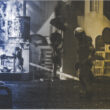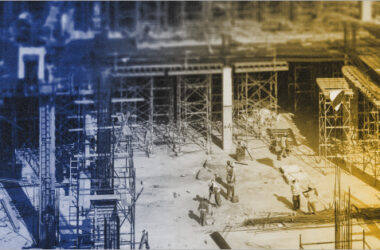Industrial All Risk Insurance and Fire Insurance are two types of insurance policies that are commonly purchased by businesses. Both policies provide coverage for damage or loss caused by fire, but they differ in terms of the scope of coverage and the types of risks they protect against.
Industrial All Risk Insurance
Industrial All Risk Insurance is a type of insurance policy that covers a wide range of risks that may occur in an industrial setting. This policy typically covers accidental loss or damage to property, machinery breakdown, and business interruption. It is designed to provide comprehensive coverage for industrial businesses, including manufacturing plants, warehouses, and other industrial facilities.
Industrial All Risk Insurance policies can be tailored to meet the specific needs of individual businesses. They can include coverage for property damage, business interruption, liability, and other risks that are unique to the industrial sector. In addition, businesses can choose to add additional coverage, such as machinery breakdown or loss of profits due to supply chain disruptions.
Fire Insurance
Fire insurance is a type of insurance that provides coverage against damages caused by fire. It is one of the most common types of insurance policies that people buy to protect their properties. Fire insurance policies generally cover damages caused by fire, lightning, and explosion. Some policies may also cover damages caused by natural disasters such as earthquakes and floods.
Fire insurance policies are usually categorized into two types: named peril policies and all-risk policies. Named peril policies provide coverage only for specific types of damages that are explicitly listed in the policy. All-risk policies, on the other hand, provide coverage for all types of damages except for those that are explicitly excluded in the policy.
Fire Insurance Policies are generally purchased by homeowners, business owners, and landlords to protect their properties against damages caused by fire. The cost of fire insurance policies varies depending on the type of property being insured, the location of the property, and the amount of coverage required.
In addition to providing coverage against damages caused by fire, Fire Insurance Policies may also cover damages caused by smoke, water, and other substances used to extinguish the fire. Some policies may also provide coverage for additional expenses such as temporary housing and living expenses if the property is uninhabitable due to the fire.
Key Differences between Industrial All Risk Insurance and Fire Insurance
Industrial All Risk Insurance (IAR) and Fire Insurance are both types of property insurance, but they differ in their scope of coverage and the risks they protect against. Here are the key differences between Industrial All Risk Insurance and Fire Insurance:
A. Scope of Coverage:
Industrial All Risk Insurance (IAR): IAR is a comprehensive form of insurance that provides coverage for a wide range of perils or risks that may cause damage or loss to the insured property. It typically covers not only fire but also other perils such as natural disasters (e.g., earthquakes, floods), theft, vandalism, explosions, machinery breakdown, and other accidental damages.
Fire Insurance: Fire insurance, as the name suggests, specifically covers damages caused by fire. While it may include coverage for other perils, its primary focus is on fire-related risks.
B. Perils Covered:
Industrial All Risk Insurance (IAR): Covers a broad spectrum of perils, offering more extensive protection against various risks that can lead to property damage.
Fire Insurance: Primarily focuses on fire-related risks, and coverage may be limited to damages caused by fire, lightning, and sometimes explosions.
C. Flexibility:
Industrial All Risk Insurance (IAR): Offers greater flexibility and can be tailored to meet the specific needs and risks associated with a particular industry or business. It allows for a more customized approach to coverage.
Fire Insurance: Tends to be less flexible, as it is designed to address a narrower set of risks related to fire incidents.
D. Premiums:
Industrial All Risk Insurance (IAR): Generally, the premiums for IAR are higher due to the broader coverage it provides, encompassing a wider range of perils.
Fire Insurance: Premiums are typically lower since it covers a more limited set of risks.
E. Policy Limits:
Industrial All Risk Insurance (IAR): May have higher policy limits due to the comprehensive coverage it offers across multiple perils.
Fire Insurance: Limits may be lower as it focuses on specific risks related to fire.
G. Common Use:
Industrial All Risk Insurance (IAR): Preferred by businesses or industries with complex risks and diverse operations where a comprehensive coverage solution is necessary.
Fire Insurance: Commonly chosen for properties where the primary concern is the risk of fire, such as warehouses, factories, and buildings where fire hazards are a significant concern.
How to Choose the Right Insurance?
When it comes to choosing the right insurance for your business, it is important to consider your specific needs and risks. Both industrial all risk and fire insurance can provide coverage for damage to your property and assets, but they differ in their scope and coverage.
Industrial all risk insurance provides comprehensive coverage for a wide range of risks, including fire, theft, natural disasters, and more. This type of insurance is ideal for businesses with high-value assets or those that are located in areas prone to natural disasters.
On the other hand, fire insurance provides coverage specifically for damage caused by fire. While it may be less comprehensive than industrial all risk insurance, it can be a more cost-effective option for businesses with lower-value assets or those that are not located in high-risk areas.
When choosing between these two types of insurance, businesses should consider factors such as their location, the value of their assets, and their specific risks. It may also be helpful to consult with an insurance professional to determine the best coverage options for your business.
In addition to choosing the right type of insurance, businesses should also consider the level of coverage they need. This can include factors such as the amount of coverage for property damage, liability coverage, and business interruption coverage.
Overall, choosing the right insurance for your business requires careful consideration of your specific needs and risks. By taking the time to carefully evaluate your options and consult with an insurance professional, you can ensure that your business is properly protected in the event of unexpected damage or loss.
The Footnote:
Industrial All Risk Insurance and Fire Insurance serve as crucial shields safeguarding businesses and property from potential risks, yet each offers a distinct approach to protection. While Fire Insurance zeroes in on mitigating the specific threat of fire and related perils, Industrial All Risk Insurance stands as a comprehensive fortress, extending its coverage to a plethora of potential hazards—from natural disasters to machinery breakdowns.
The choice between these insurance types boils down to the intricate nature of a business’s operations and the diversity of risks it faces. For industries navigating a landscape rife with complexities and multifaceted challenges, the flexibility and all-encompassing nature of Industrial All Risk Insurance prove invaluable. On the other hand, for properties where the primary concern revolves around the peril of fire, Fire Insurance emerges as a focused and cost-effective solution.
Frequently Asked Questions
- What are the key features of industrial all risk insurance compared to fire insurance?
The key features of IAR insurance include broader coverage, higher limits of liability, and more comprehensive policy wording compared to fire insurance. IAR insurance also covers losses or damages due to perils that are not covered under a fire insurance policy.
2. What are the typical exclusions in an industrial all risk policy that are not covered under fire insurance?
Typical exclusions in an IAR Policy include damages caused by war, nuclear radiation, wear and tear, and intentional acts. These exclusions are not covered under a fire insurance policy.
3. What is the purpose of an industrial all risk policy and how does it provide broader coverage than fire insurance?
The purpose of an IAR policy is to provide comprehensive coverage against a wide range of perils that can cause loss or damage to property. IAR Insurance provides broader coverage than fire insurance by covering losses or damages due to perils that are not covered under a fire insurance policy.







